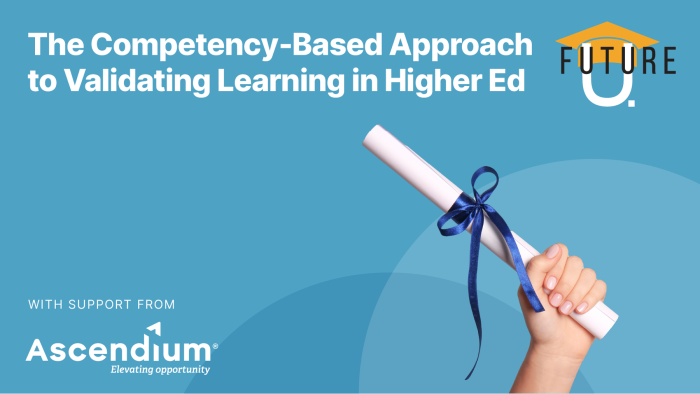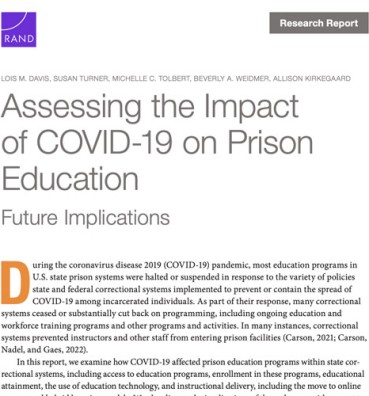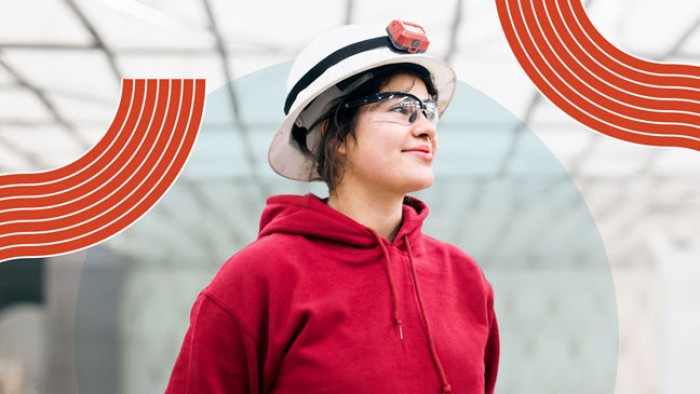
Grants to MDRC, CCRC Aim to Drive Change by Building Evidence
 At Ascendium, we’re committed to learning from and leveraging the best possible research that can guide the field and our own grantmaking. Our grant partners are consistently producing evidence that we and important stakeholders can use. Recent grants to MDRC and the Community College Research Center (CCRC) serve as examples of our continued commitment to advancing knowledge through individual projects and syntheses that are often most helpful to decision makers.
At Ascendium, we’re committed to learning from and leveraging the best possible research that can guide the field and our own grantmaking. Our grant partners are consistently producing evidence that we and important stakeholders can use. Recent grants to MDRC and the Community College Research Center (CCRC) serve as examples of our continued commitment to advancing knowledge through individual projects and syntheses that are often most helpful to decision makers.
MDRC has a long track record of producing and applying evidence to improve policy and practice. In fact, the nonprofit will soon celebrate 50 years of working to improve the lives of low-income individuals, families and children. A new grant to MDRC allows them to deepen their partnership with colleges and workforce training providers seeking to increase the success of learners from low-income backgrounds. Each project seeks to support innovation and reforms at the participating partners while generating knowledge relevant to practitioners and policymakers across the country.
MDRC projects supported by the grant include:
- Scaling and testing the Multiple Measures Assessment (an alternative to standard placement tests for college students) in a corequisite context.
- Evaluating a multifaceted student support program in two- and four-year institutions in Montana.
- Continuing to work with a college cohort to design interventions to sustain student enrollment.
- Launching the Economic Mobility Lab, which will provide customized evidence-based technical assistance to a cohort of workforce providers.
“We’re so appreciative of this partnership,” said Leigh Parise, deputy director of program development at MDRC. “In addition to advancing four existing projects, this grant from Ascendium will support our ability to step back from individual projects and write about lessons across these projects and our broader postsecondary and workforce work. This is funding that can be difficult to come by, but it often produces the most valuable information for people in the field.”
CCRC and Ascendium both share a commitment to helping community colleges improve outcomes and equity for learners, particularly those from low-income backgrounds. For more than 25 years, CCRC has been studying community colleges and the students they serve. A new grant to CCRC will allow them to conduct research projects that fill gaps in knowledge and expand into new areas so that community colleges can improve postsecondary education outcomes for their learners.
CCRC projects supported by the grant include:
- Studying City University of New York’s systemwide adoption of corequisites as a replacement for developmental education.
- Examining how community college students choose programs of study.
- Continuing research into policies and practices affecting English learners enrolled in adult education courses at City Colleges of Chicago.
- Understanding and addressing some colleges’ non-participation in institutional improvement initiatives and networks.
- Updating and synthesizing CCRC’s research on guided pathways since the seminal publication of “Redesigning America’s Community Colleges” nearly 10 years ago.
“The grant itself is really extraordinary from our standpoint,” said Thomas Brock, director of CCRC. “We’ve been doing this work for many years and it’s rare that a funder gives an organization like ours the opportunity to undertake several projects simultaneously. That kind of flexibility is helpful for financial management and makes it easier to draw lessons across projects. That is how we make the biggest advances in our learning.”
Strategically aligned with all Ascendium’s grantmaking focus areas, MDRC and CCRC will aid not only our learning, but the learning of other researchers, practitioners, policymakers and more. Together, the organizations will conduct new research and produce critical syntheses that will generate a comprehensive suite of new knowledge for stakeholders eager to drive change in postsecondary education and workforce training systems.


